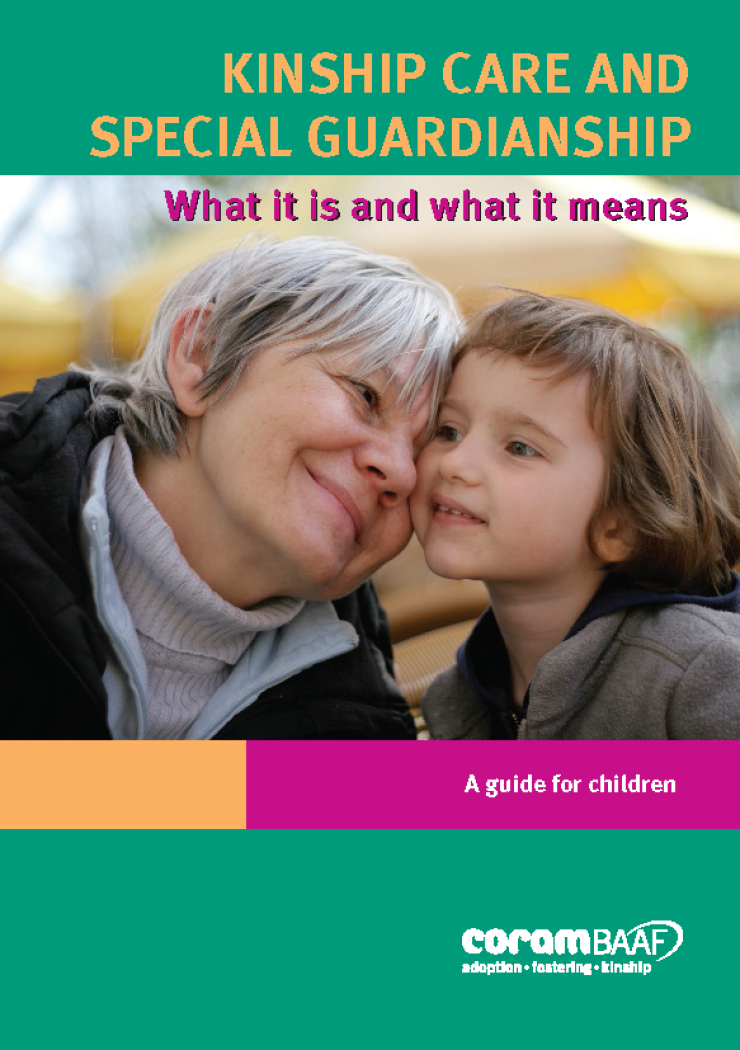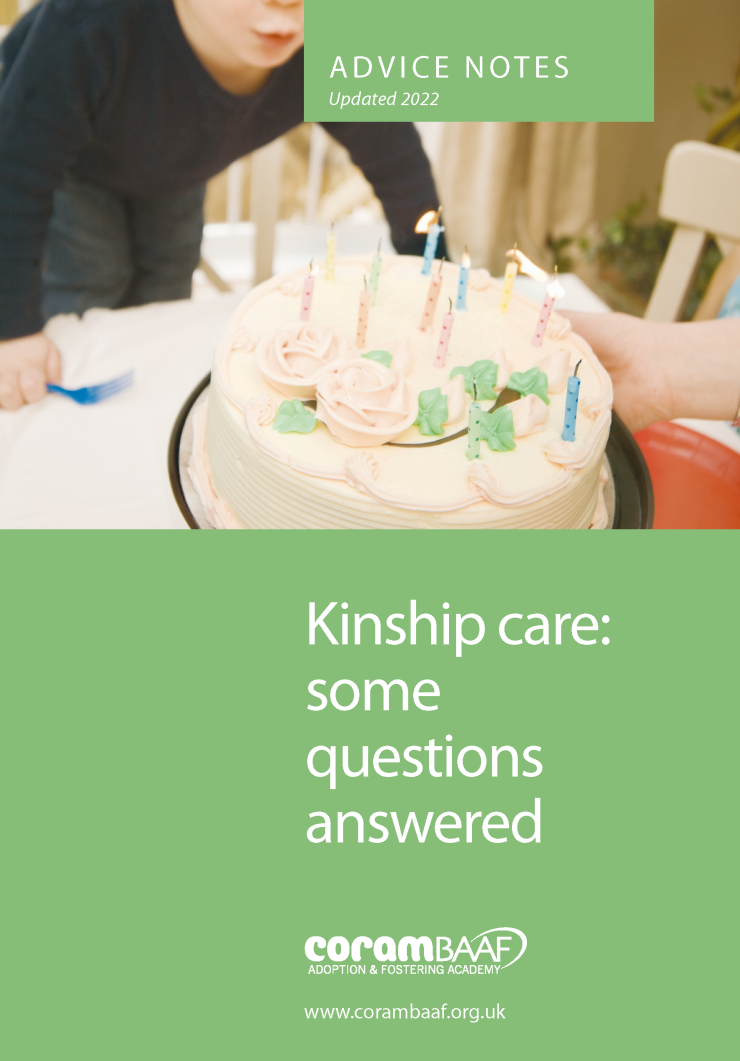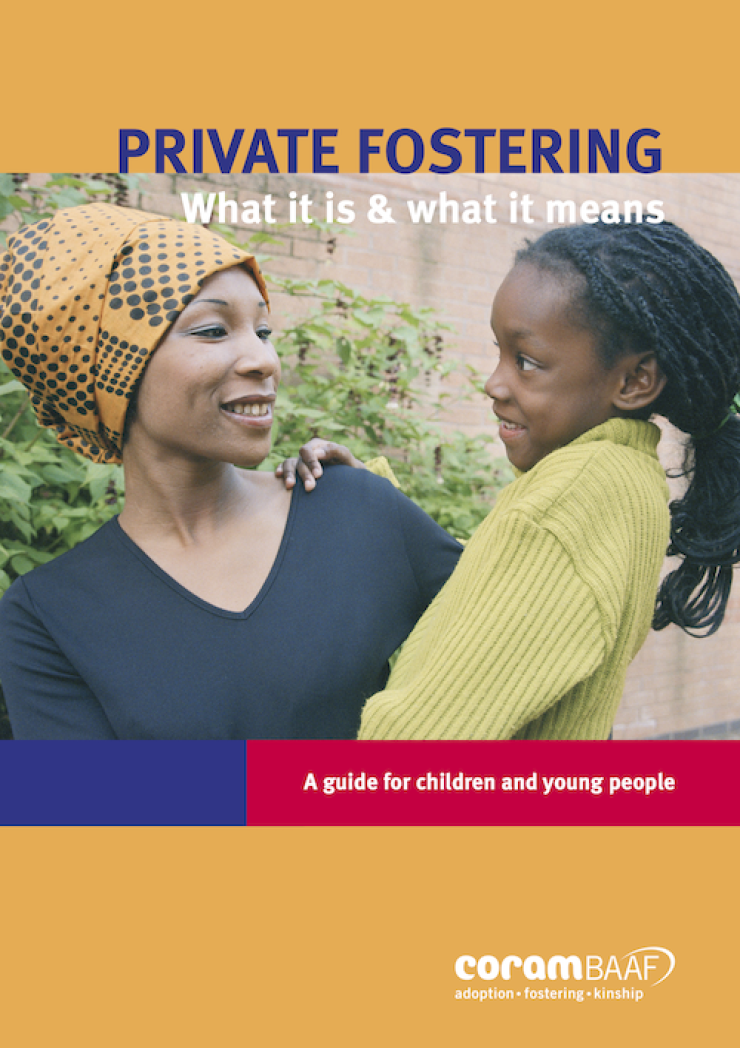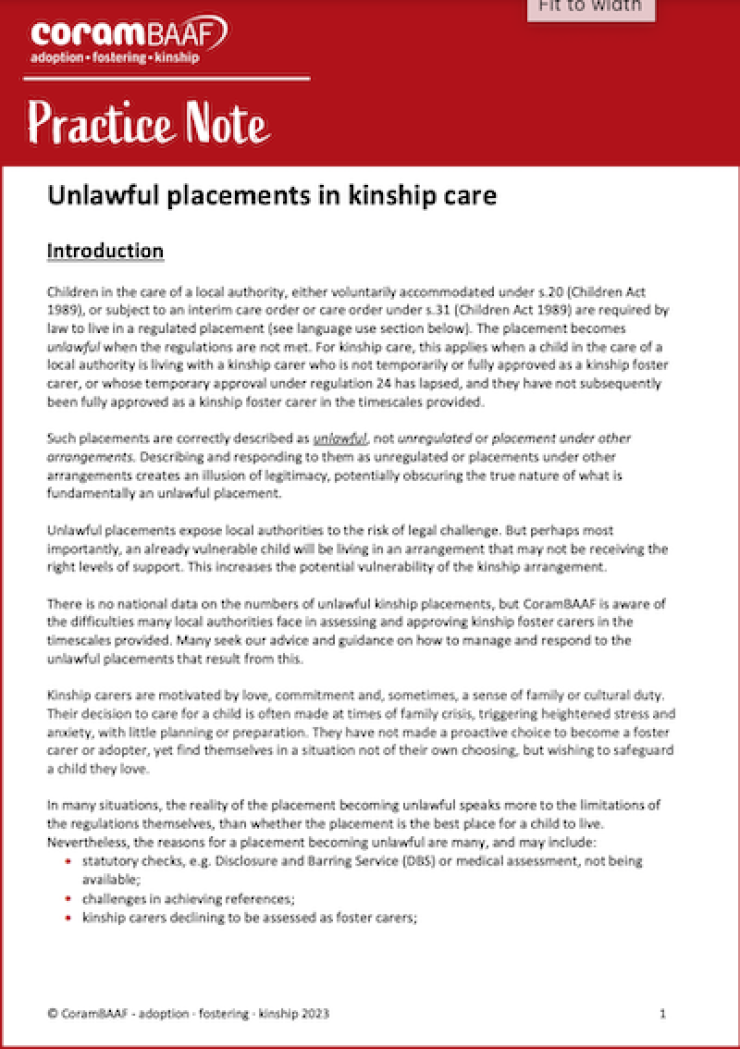Our kinship consultants develops a range of practice notes, briefings and other resources to support our members in their work. They also support the exchange of ideas and good practice at our regular practice forums.
Valuing the social work role with kinship children and their families
Drawing on 14 years of experience in a local authority kinship care team, Ann Horne reflects on the vital role of social workers in supporting kinship families to ensure children thrive within their family networks.
Read moreNew Practice Note
Advertisement
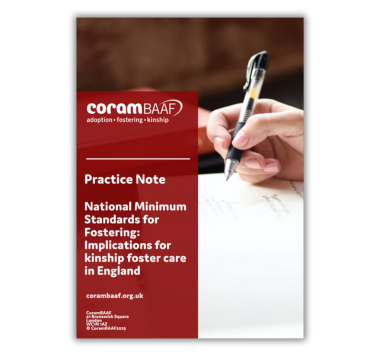
National Minimum Standards (NMS) for Fostering: Implications for kinship foster care in England
This Practice Note considers the NMS within the context of kinship foster care and how this differs from mainstream foster care. It provides practitioners and panel members with reflections about the interpretation of NMS for kinship foster carers, alongside practice points to ensure that they are supported to meet the NMS within the caring relationship they have for a specific child/ren. It considers the areas most commonly perceived as challenges if trying to evidence how a kinship foster carer meets the NMS, and also the support that could be provided. CoramBAAF’s Form K – Support Plan, which is an integral part of Form K assessment, clearly sets out the support needs of a kinship carer and can be used at the point of annual review to update and highlight additional support needs.
Free for membersKinship Care Assessment (Form K) England
CoramBAAF is excited to publish the new Kinship Care Assessment (Form K) England. The change in name from 'Form C' to 'Form K' reflects the national policy reform agenda and a growing awareness of the complexity and importance of kinship care.
The form can be used for both approval of kinship foster carers and recommendations for special guardianship orders; it is compliant with relevant law, regulations and statutory guidance. It includes an integral support plan and detailed guidance.
From Form C to Form K: the new standard for assessment
To align with the national policy reform agenda and address the complexity and importance of kinship care, we have collaborated with carers, practitioners, managers and parents to review Form C resulting in the creation of Form K to enable comprehensive assessments of prospective kinship carers.
Read more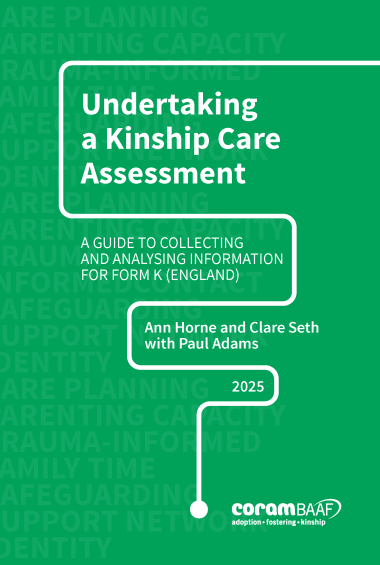
Undertaking a kinship assessment: A guide to collecting and analysing information for Form K (England)
Undertaking a Kinship Assessment is designed to help social workers gather relevant and proportionate assessment information to complete robust and evidence-based assessments of prospective kinship carers and identify support needs to mitigate risk and vulnerabilities. It can be used by assessing social workers using CoramBAAF Kinship Care Assessment (Form K) (England) published in 2025. Form K can be used to assess any prospective kinship carer and to enable approval as a kinship foster carer (connected carer/family and friends) or to recommend special guardianship orders.
Find out moreAdvertisement
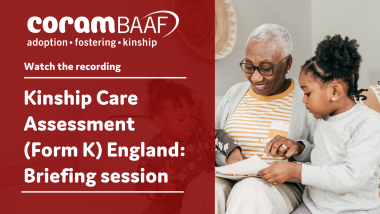
Kinship Care Assessment (Form K) England: Briefing session
The new assessment amplifies the voice of the child and focuses on the relationship between them and the prospective kinship carer, drawing out strengths and highlighting support needs. It enables a relationship-based and reflective assessment process that gathers and analyses the information required to inform decisions about a child’s future care.
Watch nowCoramBAAF Conversations
Our podcast series is dedicated to exploring topics related to adoption, fostering and kinship care. We invite children's social care professionals and experts by experience to join us to share best practices, their experiences and knowledge.
Kinship Care Week 2025
Kinship Care Week (6-12 October 2025) is an opportunity to raise awareness about the amazing role that kinship carers play in children’s lives and society. Despite increased government and national awareness, many people do not understand what kinship care actually is. Kinship Care Week is a time to celebrate and recognise all that kinship carers do for the children they love and look after. Kinship Care Week is a chance to think about the support that kinship carers provide to one another and for local authorities to think about their kinship local offer, including peer support.
Advertisement
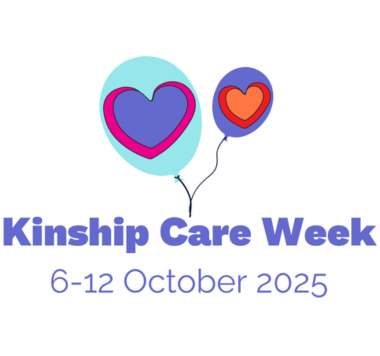
#ThisIsKinshipCare
This year the theme of Kinship Care Week is #ThisIsKinshipCare. CoramBAAF is supporting other organisations in the Kinship Care Alliance to help professionals, families and children understand what kinship care is.
Find out morePrivate Fostering
Private fostering is a private arrangement made between a parent and a responsible adult for the care of a child under the age of 16 (under 18 if disabled). The person who will be looking after the child is not a parent or close relative of the child, and the arrangement is planned to last for at least 28 days.
Advertisement

Start raising awareness today
Private foster carers may be from the extended family such as a cousin or great aunt. A private foster carer may be a friend of the family, the parent of a friend of the child, or someone previously unknown to the child’s family who is willing to privately foster the child.
Find out moreWorking with Ukrainian children and families
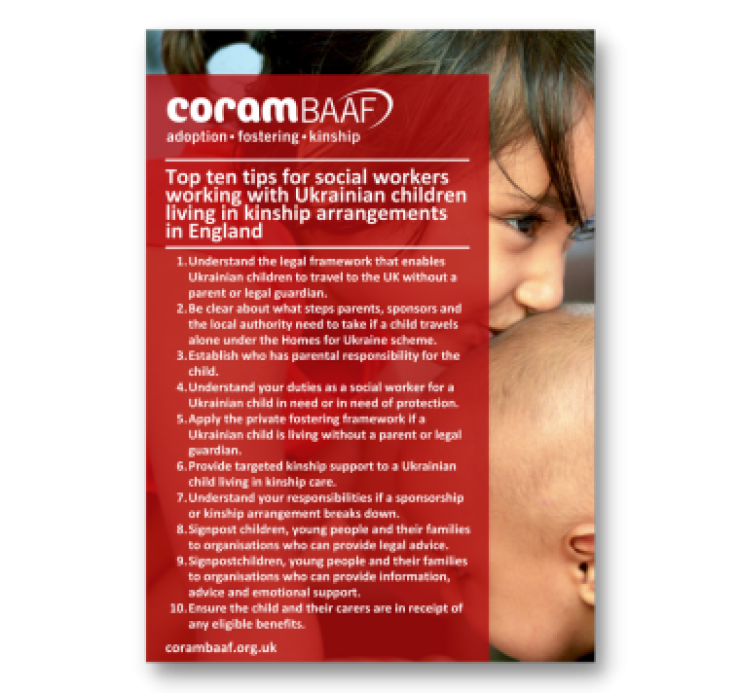
Top ten tips for social workers working with Ukrainian children
For those wanting a summary about how they can support Ukrainian children in kinship care families read our top ten tips!
This is a condensed version of our 'Frequently Asked Questions' resource,- we have included the headlines and key points from our longer document to offer a shorter and accessible version as an introduction to the topic.
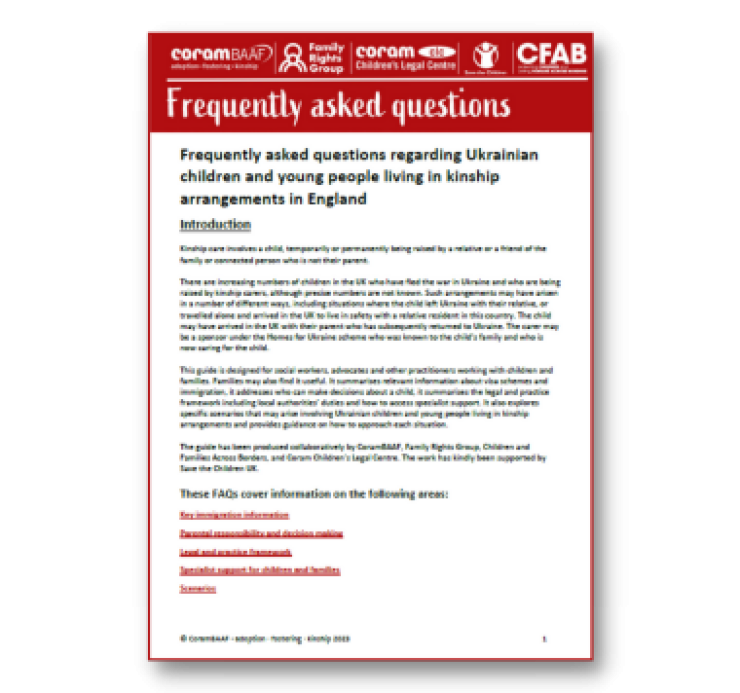
Supporting kinship carers of Ukrainian refugee children (2024)
Read the latest version of our FAQs which has been updated to reflect the changes to visa schemes. We have produced a set of comprehensive FAQs to help professionals navigate the tricky interface between social care and immigration law.
Download nowIncorporating what matters to children into practice with kinship care
We are delighted to be able to publish Dr Paul Shuttleworth's latest work, ‘Incorporating what matters to children into practice with kinship care: Listen, Understand, Do’.
Advertisement
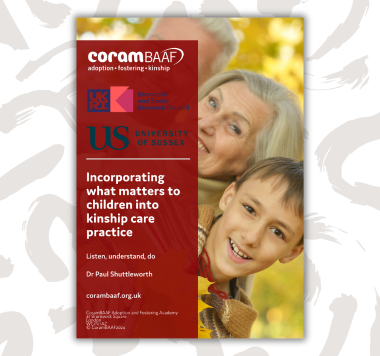
Listen, Understand, Do
A practical guide to listening to children living in kinship families to help ensure that their voices and views are heard and acted upon.The guide is accompanied by a short video that powerfully illustrates the importance of listening to children.
Find out moreIn our bookshop
All BooksKinship care and Special Guardianship: what it is and what it means
This short, colourful booklet is part of CoramBAAF’s series of publications for children and young people, which aim to explain concepts in adoption and fostering that they may find difficult to understand.
Read moreKinship care: some questions answered
This Advice Note explores kinship care, also called family and friends care or connected persons care, providing basic, clear facts for those who may be thinking about looking after a child in this situation.
Read morePrivate fostering: what it is and what it means
This short, colourful booklet is part of CoramBAAF’s series of publications for children and young people, which aim to explain concepts in adoption and fostering that they may find difficult to understand.
Read moreUnlawful placements in kinship care
In many situations, the reality of the placement becoming unlawful speaks more to the limitations of the regulations themselves, than whether the placement is the best place for a child to live. In an effort to help practitioners navigate these challenges, we have published the following a practice note.
Read more
Need advice?
Information for kinship carers
Wherever possible children who cannot live with their birth parents should be looked after by family members, friends of the family or someone they know well. There are different legal frameworks for this care. Similarly, if you are a step-parent and you want to formalise your relationship to your stepchild, several options are available to you to give the child security.
Browse our advice and information
Placing a child abroad?
The Outbound Permanence Service provides specialist information & advice on the legal, assessment and support options available in the overseas country.
Get adviceGet involved
Our multidisciplinary groups and provide a platform to our members so we can advocate on their behalf to Government, and ensure that their voices are heard in the development of legislation, policy and practice.

Kinship Care Practice Forum
Discuss developing areas of policy and share views at our Kinship Care Practice Forum.

Private Fostering Practice Forum
Discuss developing policy and practice dilemmas in Private Fostering arrangements.
Find out more
